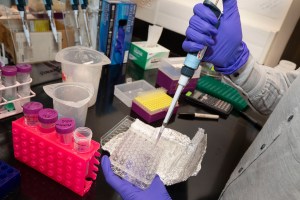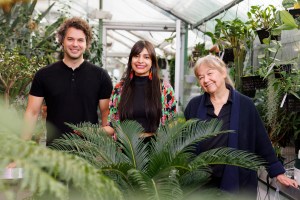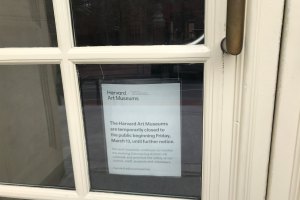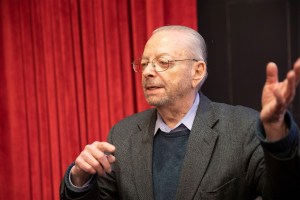All articles
-
Campus & Community
In HR, preparing for a challenge
At Harvard, the rise of coronavirus prompts new approaches to work, fresh concerns for those who do it, says Vice President for Human Resources Marilyn Hausammann.
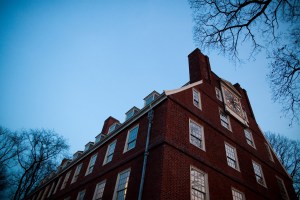
-
Campus & Community
University offers coronavirus resources and help guides
University offers coronavirus resources and help guides for students, professors, and staff.
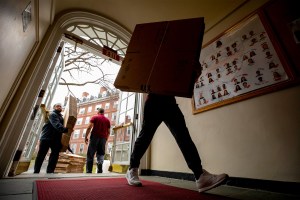
-
Health
‘Worry about 4 weeks from now,’ epidemiologist warns
Harvard epidemiologist says U.S. needs to dramatically increase testing and social distancing, adding to the closings, cancellations, and shifts online.
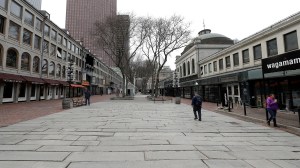
-
Health
Why does Alcoholics Anonymous work?
Researchers have found that Alcoholics Anonymous and related 12-step treatments lessen addiction severity as effectively as other treatments, while reducing health care costs.
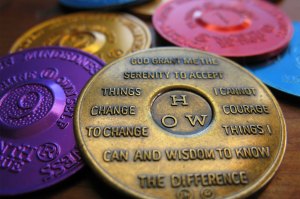
-
Arts & Culture
Self-help books, literature, and how they help us live
In a new book, Harvard Assistant Professor of English Beth Blum traces the historical relationship between self-help and literature.
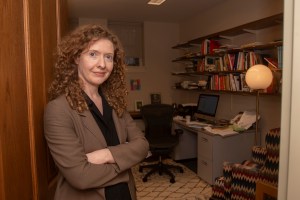
-
Health
A virus that targets the elderly
Harvard-affiliated doctors try to safeguard nursing-home patients from COVID-19 by reducing number of visitors, adding health screenings.
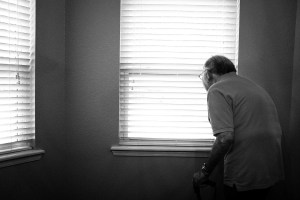
-
Campus & Community
Q&A on Harvard’s move to online learning
To prevent transmission of COVID-19, Harvard will provide virtual instruction for as many courses as possible by March 23, the first day of scheduled classes following spring break. In a question-and-answer session, three top Harvard officials explain the shift.
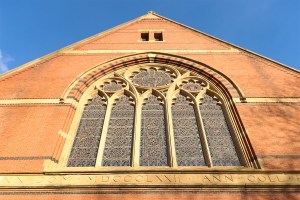
-
Arts & Culture
Danger in creating an English-language library in Gaza
Harvard Scholar at Risk and poet Abu Toha created the first English-language library in Gaza.
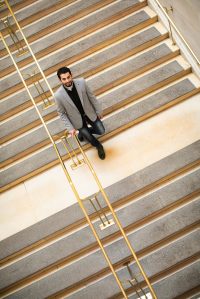
-
Nation & World
Writing wrongs
Laura Pérez Sánchez was awarded a journalism fellowship that allowed her to thoroughly report on Puerto Rico’s Hurricane Maria recovery efforts.
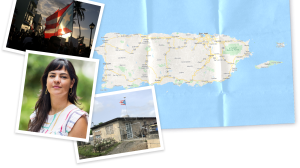
-
Health
Bridging gaps
The Dental School’s Colleen Greene is having a lot of fun tackling some of Wisconsin’s biggest oral health issues.
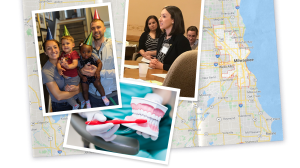
-
Campus & Community
Advice to students: Don’t be afraid to ask for help
Anthony A. Jack urges students not to be afraid of asking for help.
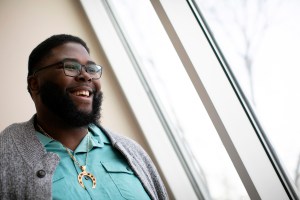
-
Health
Helping hands bring laser light to Armenia
Lilit Garibyan has brought her medical skills back to her native Armenia, decades after her family fled during war with neighboring Azerbaijan.
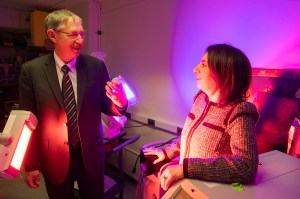
-
Science & Tech
i3 Center formed for advancing cancer immunotherapy
Harvard’s Wyss Institute will collaborate with other institutions to form the i3 Center where cancer immunologists and biological engineers will develop new biomaterials-based approaches to enable anti-cancer immune-therapies for therapy-resistant cancers.
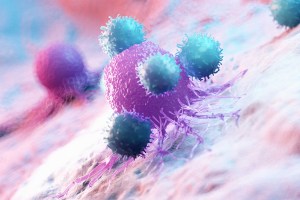
-
Nation & World
Learning by heart
Seonjoon Young returned to her home state of Colorado to bring her trauma-informed training into the classroom.
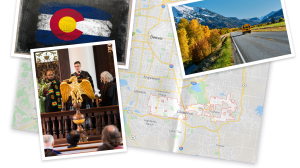
-
Science & Tech
Was Darwin first? Kind of depends
Charles Darwin’s work arose in an era where many were thinking about the source of nature’s variety.
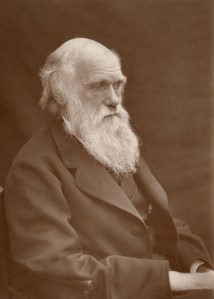
-
Health
How to reduce the spread of coronavirus
Health experts highlight basic hygiene measures to prevent infection spread of the new coronavirus that has affected more than 90,000 around the world.

-
Campus & Community
A faithful keeper of time
Harvard’s on-call horologist Richard Ketchen keeps busy round the clock.
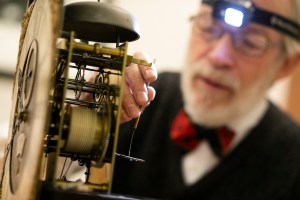
-
Health
An egg a day is OK
A new study that includes up to 1.7 million participants, found eating up to one egg per day is not associated with a higher risk of cardiovascular disease.
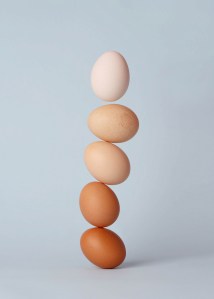
-
Health
Coronavirus screening may miss two-thirds of infected travelers entering U.S.
Harvard epidemiologist Marc Lipsitch says two-thirds of travelers with coronavirus who are entering U.S. may have been missed by screening efforts.
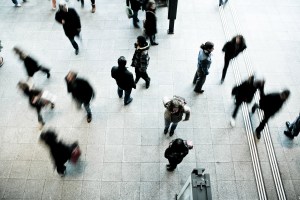
-
Campus & Community
Harvard details coronavirus outbreak plans
Harvard details plans to ensure safety, health, and productivity of community amid coronavirus outbreak.
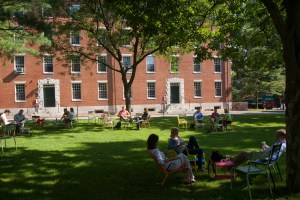
-
Campus & Community
40,246 apply to College Class of ’24
Harvard expands financial aid to eliminate summer contribution.
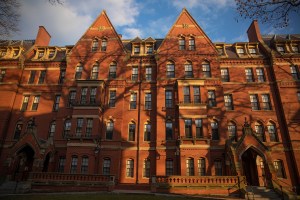
-
Campus & Community
Roderick Lemonde MacFarquhar, 88
At a Meeting of the Faculty of Arts and Sciences on March 3, 2020, the Minute honoring the life and service of the late Roderick MacFarquhar, Leroy B. Williams Professor of History and Political Science, Emeritus, was placed upon the records. Professor MacFarquhar was a brilliant scholar of Chinese politics who worked as a pioneering…
-
Campus & Community
Lawrence Elwood Stager, 74
At a Meeting of the Faculty of Arts and Sciences on March 3, 2020, the Minute honoring the life and service of the late Lawrence E. Stager, Dorot Professor of the Archaeology of Israel, Emeritus, was placed upon the records. Professor Stager built formidable programs on the ancient Near East that encompassed anthropology, classical archaeology,…
-
Nation & World
The real trade-offs attached to going green with nuclear energy
Former U.S. energy officials urge a second look at nuclear power to combat climate changes.
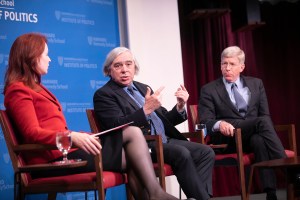
-
Work & Economy
How political ideas keep economic inequality going
Economist Thomas Piketty discusses his new research into the historical roots of inequality around the world and what can be done to begin redressing it.
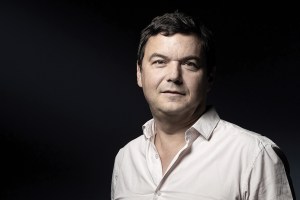
-
Campus & Community
Oliver Hart named University Professor
Nobel-laureate economics Professor Oliver Hart is awarded Harvard’s highest faculty honor.
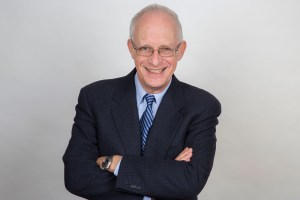
-
Campus & Community
Advice to students: Do something meaningful with your life
Take some time, look around, and work at something that makes you happy, Steven Levitsky counsels.
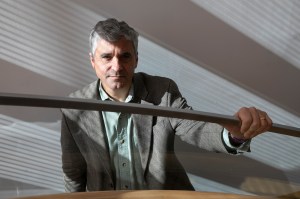
-
Work & Economy
With federal funds, Harvard helps drive local economy
Harvard University uses its federal research funding to foster economic growth throughout the region.
